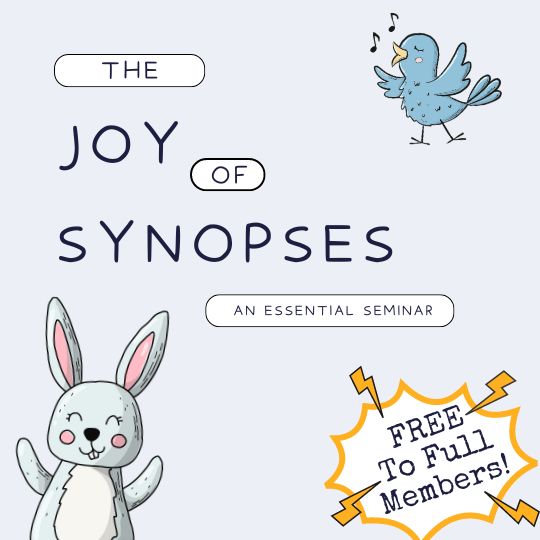I thought this was interesting. Obviously meant slightly tongue in cheek, but accurate?

Take heed of the warning signs of a dud novel, you don’t want to ruin a long-haul flight or even your holiday with a bad selection in the bookshop.
MON, 29 JUL, 2024 - 01:00

Terry Prone
It doesn’t matter that much if you’re just flying to Birmingham or Amsterdam.
You’re not going to be stuck in the plane long enough to develop major buyer’s regret over whatever you selected in the bookshop.
A transatlantic flight, though, or one headed to Australia, can be terrible if you have picked a dud book.
It is like being at a wedding where you’re trapped with a distant relative whose commitment to being boring is matched only by their practiced skill at it.
Dud-avoidance, in the airport, is personal. If you’re one of those people who loves books about women in their early 20s who spend their days sculpting their faces in between WhatsApping what might be described as their thoughts, then your choice is simple, because so many of those books get published every year.
Open them and you find brand names. Not because the book is sponsored, although maybe it is, but because the heroine of such novels navigates their way through life guided by branding.
Like the way explorers used to follow the notches cut into trees by scouts going ahead of them, these women progress in little jumps, starting with Charlotte Tilbury or Tommy Hilfiger.
Each brand named is a tiny pat of comfort to the reader: you’re familiar with this, so you’re safe so far.
When you look at the tables of books in the airport shop, you need to know the hints that any particular book is a dud. Starting with the cover and the title.
If the cover has a rendition of a house at twilight with figures in silhouette in the windows, it’s a dud.
Similarly, if the title has the word ‘girl’ in it, it’s a dud. Five years ago, it was great.
Today, it’s a thriller-cliché, like the baby/young girl who disappeared without trace a decade ago but who may or may not have died.
Do not miss the geographical issue. Islands. Any book set on an island needs avoiding.
An island means the potential murder witness has no mobile phone signal and no capacity to reach the local Garda station.
As well as staying on the mainland, you should interrogate the short positive quotes from writers.
Flattering recommendations from unknown writers
Beware, for starters, of flattering quotes from writers who must themselves be introduced: “‘This book is warm and endearing’ — Lauren Billington, author of Two Scars and a Heartbreak.”
That’s what you might call a “you don’t know me, but” introduction, and they’re deadly.
Whenever someone accosts you with those words, up the creek without a paddle describes your situation and it’s the same story with writers giving plugs to other writers.
The little-known ones are publicising themselves and don’t have the literary credentials to vouch for whatever new author you’re considering.
But even the ones who do have the literary credentials have to be considered carefully, because some of them are so soft-hearted, they’ll give a plug to anyone they’re sorry for.
Lee Child and Stephen King are just too bloody supportive of other writers.
Ditto our own beloved Marian Keyes, who is unremittingly helpful to every other writer, as is Cathy Kelly, neither of whom could refuse a request from a friend even if the friend’s book is pretty obviously a lemon.
Consequently, their name and quote on a book not written by themselves should be taken, not with a grain of salt because neither is dishonest, but with the realisation that they live by kindness.
Neither is ever going to win the Dorothy Parker Bitch of the Year Award.
 When you look at the tables of books in the airport shop, you need to know the hints that any particular book is a dud. Starting with the cover and the title.
When you look at the tables of books in the airport shop, you need to know the hints that any particular book is a dud. Starting with the cover and the title.
Parker was known for the viciousness of her book reviews. Of one arrival in bookstores, she wrote: “That’s what you call a money-saving review. It does save readers money and time. Also raisins.”
But then, a quick glance through the book itself, even standing at the table in the airport, can also mark your card.
Go to the back, first, to the ‘Acknowledgements’. If they run more than a page, it is a dud.
If they run more than three pages, it’s a dud so florid you might feel the need to warn off total strangers around you.
The bad news is that it’s not enough to note the length of the acknowledgements, either.
Dud-prevention may also require you to check through the lengthy acknowledgements to find where those expressions of gratitude involve exhaustive and exhausting tributes to parents for doing what any decent parent would do, or suggestions that the writer would be incapable of walking upright, never mind producing manuscripts, were it not for the constant moral support of their spouse, older sister, two-year-old, or dog. Here’s a secret.
We, the reader, do not care. Just give us the goods and less of the surrounding self-exculpatory cringe-worthy gratitude, OK?
The longer the ‘Acknowledgments’, the more likely is the book to have been written by a woman.
That’s partly because women tend to be better than men at remembering their mothers telling them to say thank you and sorry.
It’s also because women are no dozers, and they know that the more they endear themselves to every line editor/agent/publicist/bookseller through whose hands their novel passes, the better their chances of a best seller and second contract.
We love women writers. But crawly women writers who think we, the potential buyer, can’t spot publisher-arse-licking? Not so much.
Go then to the front of the book and look at the dedication. The same rules apply. Brevity is key to a good dedication.
If you still have faith that the book in your hand might be worth the cost price, flip through the pages.
Now, we’re not going to bitch and moan in this column about publishers who skip quotation marks so you’re left guessing who is saying what.
It does pay, however, to take a quick look at any dialogue present, because certain utterances are signals of more general awfulness.
Decide by the dialogue
Take the situation where one character recounts something outrageous that happened to them and how they responded to it. If the second character says “as you do,” ditch that book.
(Also drop the people in your actual life who think inserting “as you do” into a conversation is witty. It SO isn’t.)
Two other stinkers are, first of all, one character in dialogue saying to another: “Like I said before.”
The other is where a character says something along the lines of: “My relationship with Jake was great. Until it wasn’t.”
Admit it. You’re sick of the “x was wonderful. Until it wasn’t” locution. You have to be.
Finally, locate a meal scene. Vomitous, it is, when the author says that the hake, or steak was “washed down” by a Chablis or some other wine, as if the culinary experience was a close relative of a sluice room.
Catch all those warning signs and you’re good to go, in reading terms. Happy holiday.
Terry Prone: Dodge the duds and avoid book buyer’s remorse on long-haul trips
When you look at the tables of books in the airport shop, you need to know the hints that any particular book is a dud
Take heed of the warning signs of a dud novel, you don’t want to ruin a long-haul flight or even your holiday with a bad selection in the bookshop.
MON, 29 JUL, 2024 - 01:00

Terry Prone
It doesn’t matter that much if you’re just flying to Birmingham or Amsterdam.
You’re not going to be stuck in the plane long enough to develop major buyer’s regret over whatever you selected in the bookshop.
A transatlantic flight, though, or one headed to Australia, can be terrible if you have picked a dud book.
It is like being at a wedding where you’re trapped with a distant relative whose commitment to being boring is matched only by their practiced skill at it.
Dud-avoidance, in the airport, is personal. If you’re one of those people who loves books about women in their early 20s who spend their days sculpting their faces in between WhatsApping what might be described as their thoughts, then your choice is simple, because so many of those books get published every year.
Open them and you find brand names. Not because the book is sponsored, although maybe it is, but because the heroine of such novels navigates their way through life guided by branding.
Like the way explorers used to follow the notches cut into trees by scouts going ahead of them, these women progress in little jumps, starting with Charlotte Tilbury or Tommy Hilfiger.
Each brand named is a tiny pat of comfort to the reader: you’re familiar with this, so you’re safe so far.
When you look at the tables of books in the airport shop, you need to know the hints that any particular book is a dud. Starting with the cover and the title.
If the cover has a rendition of a house at twilight with figures in silhouette in the windows, it’s a dud.
Similarly, if the title has the word ‘girl’ in it, it’s a dud. Five years ago, it was great.
Today, it’s a thriller-cliché, like the baby/young girl who disappeared without trace a decade ago but who may or may not have died.
Do not miss the geographical issue. Islands. Any book set on an island needs avoiding.
An island means the potential murder witness has no mobile phone signal and no capacity to reach the local Garda station.
As well as staying on the mainland, you should interrogate the short positive quotes from writers.
Flattering recommendations from unknown writers
Beware, for starters, of flattering quotes from writers who must themselves be introduced: “‘This book is warm and endearing’ — Lauren Billington, author of Two Scars and a Heartbreak.”
That’s what you might call a “you don’t know me, but” introduction, and they’re deadly.
Whenever someone accosts you with those words, up the creek without a paddle describes your situation and it’s the same story with writers giving plugs to other writers.
The little-known ones are publicising themselves and don’t have the literary credentials to vouch for whatever new author you’re considering.
But even the ones who do have the literary credentials have to be considered carefully, because some of them are so soft-hearted, they’ll give a plug to anyone they’re sorry for.
Lee Child and Stephen King are just too bloody supportive of other writers.
Ditto our own beloved Marian Keyes, who is unremittingly helpful to every other writer, as is Cathy Kelly, neither of whom could refuse a request from a friend even if the friend’s book is pretty obviously a lemon.
Consequently, their name and quote on a book not written by themselves should be taken, not with a grain of salt because neither is dishonest, but with the realisation that they live by kindness.
Neither is ever going to win the Dorothy Parker Bitch of the Year Award.

Parker was known for the viciousness of her book reviews. Of one arrival in bookstores, she wrote: “That’s what you call a money-saving review. It does save readers money and time. Also raisins.”
But then, a quick glance through the book itself, even standing at the table in the airport, can also mark your card.
Go to the back, first, to the ‘Acknowledgements’. If they run more than a page, it is a dud.
If they run more than three pages, it’s a dud so florid you might feel the need to warn off total strangers around you.
The bad news is that it’s not enough to note the length of the acknowledgements, either.
Dud-prevention may also require you to check through the lengthy acknowledgements to find where those expressions of gratitude involve exhaustive and exhausting tributes to parents for doing what any decent parent would do, or suggestions that the writer would be incapable of walking upright, never mind producing manuscripts, were it not for the constant moral support of their spouse, older sister, two-year-old, or dog. Here’s a secret.
We, the reader, do not care. Just give us the goods and less of the surrounding self-exculpatory cringe-worthy gratitude, OK?
The longer the ‘Acknowledgments’, the more likely is the book to have been written by a woman.
That’s partly because women tend to be better than men at remembering their mothers telling them to say thank you and sorry.
It’s also because women are no dozers, and they know that the more they endear themselves to every line editor/agent/publicist/bookseller through whose hands their novel passes, the better their chances of a best seller and second contract.
We love women writers. But crawly women writers who think we, the potential buyer, can’t spot publisher-arse-licking? Not so much.
Go then to the front of the book and look at the dedication. The same rules apply. Brevity is key to a good dedication.
If you still have faith that the book in your hand might be worth the cost price, flip through the pages.
Now, we’re not going to bitch and moan in this column about publishers who skip quotation marks so you’re left guessing who is saying what.
It does pay, however, to take a quick look at any dialogue present, because certain utterances are signals of more general awfulness.
Decide by the dialogue
Take the situation where one character recounts something outrageous that happened to them and how they responded to it. If the second character says “as you do,” ditch that book.
(Also drop the people in your actual life who think inserting “as you do” into a conversation is witty. It SO isn’t.)
Two other stinkers are, first of all, one character in dialogue saying to another: “Like I said before.”
The other is where a character says something along the lines of: “My relationship with Jake was great. Until it wasn’t.”
Admit it. You’re sick of the “x was wonderful. Until it wasn’t” locution. You have to be.
Finally, locate a meal scene. Vomitous, it is, when the author says that the hake, or steak was “washed down” by a Chablis or some other wine, as if the culinary experience was a close relative of a sluice room.
Catch all those warning signs and you’re good to go, in reading terms. Happy holiday.




